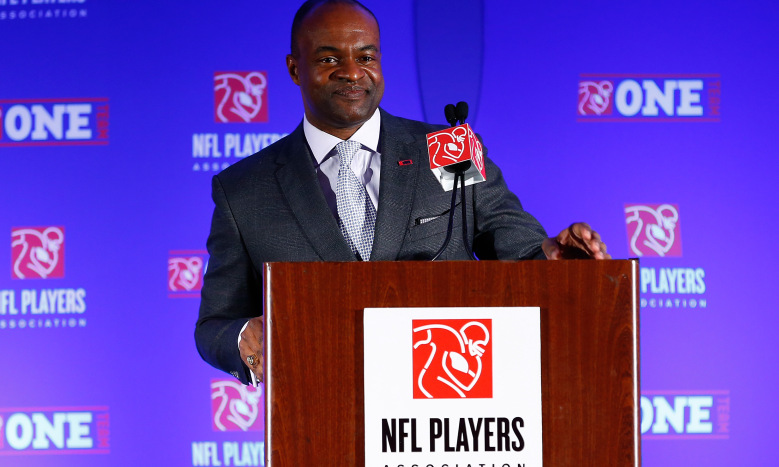
As the NFLPA urges players to prepare for a potential work stoppage after next season, it’s brought in the big guns to help manage players’ money for next season and the years after their playing careers end. The move is intriguing for several reasons. Foremost, the two firms, Goldman Sachs and Bessemer Trust, will be much different than existing financial advisors registered with the NFLPA in that they are not just one individual financial advisor. Now, an entire financial institution can register with the NFLPA and monitor its employees who are involved in the management of players’ earnings. This dynamic adds a layer of protection and security for NFL players, whose money would be repaid by the advising firm in an investment in which fraudulent activity played a role.
The move is also a significant signal from the NFLPA that a lockout is very possible, even though talks have already begun between the league and the players association in hopes of preventing that very situation. If the two sides do come to an agreement, the addition of Goldman and Bessemer will be advantageous for another reason, according to Dana Shuler, the NFLPA’s director of player affairs. “I’d like to think about a work stoppage for players . . . (as) really a fire drill for when the paychecks really do come to an end.” Retirement planning, or the lack thereof, has been a well-documented issue for professional athletes across all sports, and Mrs. Shuler is hoping that players will become more aware that they won’t play forever and need to begin planning financially for when that day comes.
The NFLPA created the financial advisors program in 2002 and have about 165 money managers in the network. About half of the players are enrolled in the voluntary program, which requires Certified Financial Planners and Chartered Financial Analysts to have at least 8 years of licensed work experience.
The program hasn’t exactly kept all money managers from deceiving players out of millions of dollars, however. Former NFL financial advisor Jeff Rubin misguided several NFL players to invest in a bingo resort in Alabama. The state shortly thereafter outlawed the exact electronic bingo gaming machines the resort operated, resulting in total losses of over $43 million.
Many lawyers and NFLPA officials believe adding reputable financial institutions to the network of money managers accessible by players is a step in the right direction, as it provides opportunity for potential losses to be recouped if an investment go awry. For example, if Rubin had been employed by Goldman Sachs at the time, the firm would’ve been on the hook for the $43 million, not the players. And if we know anything about Goldman Sachs and its long and successful history, it will be sure not to find itself on the wrong end of a million-dollar investment.
The NFLPA has reportedly interviewed additional institutions to join the network of financial advisors on an invite-only basis, as the NFL is only willing to work with elite institutions whose reputations have already been demonstrated in the financial advisory industry.
